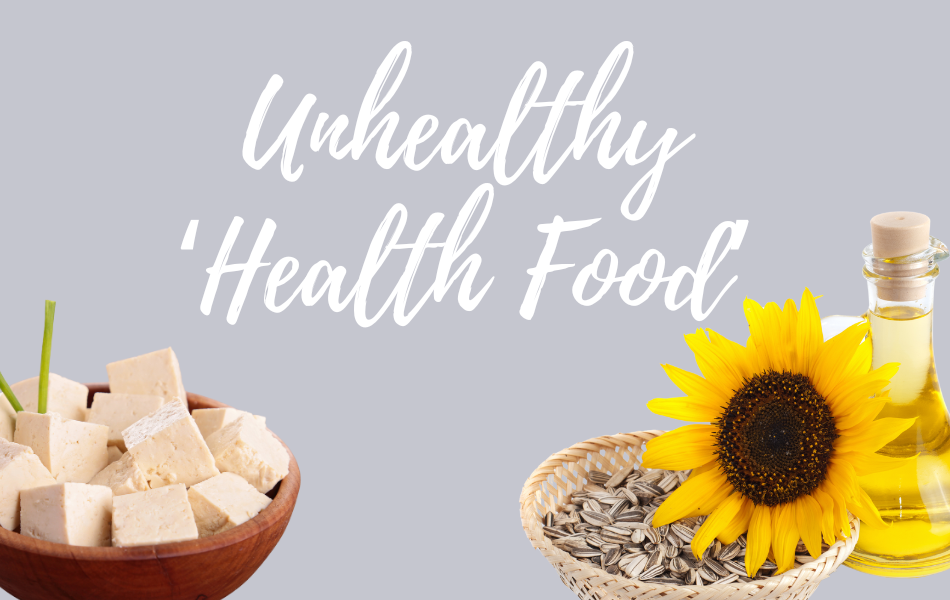Beware of the Health Food Trap: What You Need to Know About “Healthy” Foods
In today’s world, every new food trend brings with it a flood of products labeled as ‘low calorie,’ ‘gluten free,’ ‘dairy free,’ ‘keto friendly,’ ‘low fat,’ or ‘reduced salt.’ The rise of veganism, for example, has led to an explosion of meat substitutes and other products that claim to be healthy just because they’re free of animal products. But here’s the hard truth: not everything labeled as healthy is actually good for you.
In this article, we’ll uncover why many so-called ‘healthy’ foods might be doing more harm than good. Let’s dive in.
Quorn: When Fungus Becomes Food
Quorn is a popular meat substitute made from a fungus called Fusarium venenatum. It’s processed into a protein called mycoprotein, which is then used in various meat-like products. Sounds harmless enough, right? But here’s the catch: some studies suggest that mycoprotein can be a potential allergen, causing dangerous reactions in some people.
If you’re craving something that looks, smells, and tastes like meat, maybe just eat the real thing. True vegans thrive on vegetables, not on imitation meats filled with questionable ingredients. As long as you’re supplementing with B12, you can maintain a healthy, balanced diet without the need for meat substitutes.
Soya Products: A Double-Edged Sword
Soy-based foods like soy milk, tofu, and tempeh have become staples for many health-conscious eaters. However, soy contains lectins, which can mess with your hunger and energy signals, making you feel hungry even when you’re not.
Soy also contains phytates, which can block the absorption of essential minerals like zinc, calcium, iron, and magnesium. And let’s not forget goitrogens, which can interfere with your thyroid’s ability to use iodine, potentially leading to hypothyroidism—a condition that can slow your metabolism and make you feel tired and sluggish.
Plus, soy is rich in plant estrogens, which can throw off your hormone balance, affecting everything from your menstrual cycle to your risk of developing certain cancers. While a little soy sauce here and there might not hurt, regularly consuming soy-based products could be problematic, especially for IBS sufferers.
Olive Oil Spread: A Slippery Slope
Olive oil spreads are often marketed as a healthier alternative to butter, but here’s the thing: combining saturated fats (like butter) with unsaturated fats (like olive oil) can create a fatty acid chain that’s difficult for your body to digest.
If you want a healthier option, stick with real butter—unpasteurised and salt-free if possible. If you’re vegan, opt for pure nut butter, avocado, or olive oil as a spread instead of processed alternatives.
Rapeseed Oil: The Hidden Culprit
Rapeseed oil, also known as canola oil, is often touted as a heart-healthy option. However, the process of extracting oil from the rapeseed plant involves chemicals like hexane, which can reduce the oil’s nutritional value. Plus, many rapeseed oils are genetically modified, adding another layer of concern.
For better gut health and to avoid potential irritants, stick to oils like olive oil, avocado oil, and sesame oil, and try to steer clear of rapeseed oil whenever possible.
Stevia: Sweet, but Not So Innocent
Stevia, a natural sweetener derived from a leaf, is often promoted as a healthier alternative to sugar. While it’s better than refined white sugar, it’s still a processed product. And remember, just because something is natural doesn’t mean it’s automatically good for you—after all, cocaine is also derived from a plant.
If you’re craving something sweet, reach for a piece of fruit instead. Your body will thank you for the whole food nutrients, and it knows exactly how to process them.
Energy Drinks: A Recipe for Disaster
Energy drinks are marketed as a quick way to boost your energy, but they’re loaded with sugar, caffeine, and sometimes even artificial sweeteners like aspartame. While they might give you a short-term energy boost, they also set you up for a crash later on. Regular consumption can mess with your metabolism, increase your risk of diabetes, and wreak havoc on your overall health.
And if that’s not enough to turn you off, consider this: some brands use stomach bile from caged bears in their production process. Gross, right?
The IBS Freedom Method: A Path to True Health
The truth is, achieving good health—especially when it comes to managing IBS—requires more than just falling for the latest health food fad. It’s about understanding what you’re putting into your body and making informed choices. The IBS Freedom Method is a simple, easy-to-follow program that’s helping thousands of women around the world become IBS free naturally, safely, and quickly.
By focusing on whole foods, minimizing processed foods, and paying attention to how your body reacts to what you eat, you can take control of your gut health and live an IBS-free life.

